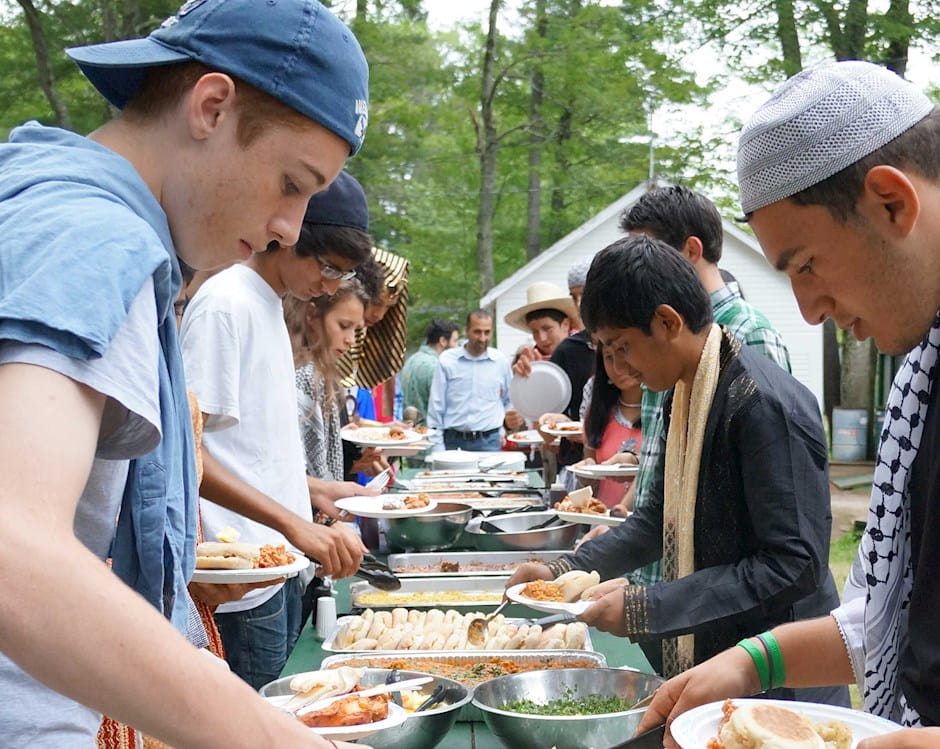
Founded in 1993, Seeds of Peace is one of the largest camps of its kind, bringing groups of young people from conflict-torn regions together for three weeks during the summer in the woods of Maine.
- By
- September 09, 2014
- CBR - Behavioral Science

Founded in 1993, Seeds of Peace is one of the largest camps of its kind, bringing groups of young people from conflict-torn regions together for three weeks during the summer in the woods of Maine.
For decades, world leaders and diplomats have tried to broker peace between Israelis and Palestinians. But research suggests that as well as high-level negotiations, summer camps that bring together young Israelis and Palestinians on neutral ground could help build more peaceful long-term relationships.
Associate Professor Jane L. Risen and Booth PhD student Juliana Schroeder have been analyzing a program for Israeli and Palestinian teenagers. If the teens develop real connections with those from the “other side”—the simple, but lofty goal of the program—do they have fonder feelings for the other group as a whole? And do those feelings persist?
Founded in 1993, Seeds of Peace is one of the largest camps of its kind, bringing groups of young people from conflict-torn regions together for three weeks during the summer in the woods of Maine. The teens selected have strong leadership potential and know how to speak English. All their expenses are paid by the program.
Risen and Schroeder studied three groups of campers during the summers of 2010, 2011, and 2012, including some 280 Muslim Palestinian and Jewish Israeli teenagers of both sexes. They had the campers fill out questionnaires at the beginning and end of camp, then nine months to a year after they were back in their home countries. Questions focused on their opinions about the “outgroup” including feelings of positivity, closeness, similarity, and trust. The questionnaire also asked whether the teens had made friends among the outgroup over the course of the camp.
The researchers’ central finding is that attitudes toward the outgroup grew less negative from precamp to postcamp, especially for the campers who made an outgroup friend. “Seeds of Peace founder John Wallach’s advice to campers to ‘make one friend’ seems prescient,” the authors write. “But incorporating results from our analysis after reentry, we would modify his advice slightly: Make and keep just one friend.”
Forming just one friendship was all it took for a camper’s attitude to change: “Whether or not participants formed at least one friendship,” write the authors, “was as good as or a better predictor of future attitudes toward the outgroup than the number of friendships they formed, suggesting that only one friendship may be sufficient to improve intergroup relations.”
The effects persisted after the campers returned home. “We note that attitude change significantly fades when campers return home,” says Risen, “but we do find evidence that some of the change is maintained. In other words, one year later participants are more positive than they were at the start of camp (but not nearly as positive as at the end of camp).” Other research has also found evidence of long-term change: following Seeds of Peace campers for 10 years after they return home, a previous study by George Mason University’s Ned Lazarus finds that ex-campers are more likely to participate in peace-building activities in those years.
The research is ongoing, and Risen and Schroeder plan to study whether the campers’ changed attitudes spread to others after their return home. Also, the political climate during the three summers Risen and Schroeder analyzed was relatively peaceful—the same is not true for the Seeds of Peace 2014 camp, in session through late August. Schroeder says the campers’ attitudes toward the outgroup this year could start more negatively than during peacetime. However, she and Risen expect to still see positive change from precamp to postcamp. Whether the change is of equal magnitude as past years, she says, “remains to be seen.”
Your Privacy
We want to demonstrate our commitment to your privacy. Please review Chicago Booth's privacy notice, which provides information explaining how and why we collect particular information when you visit our website.